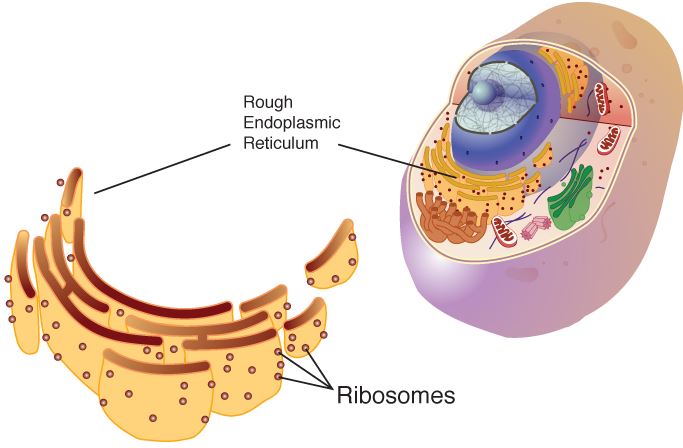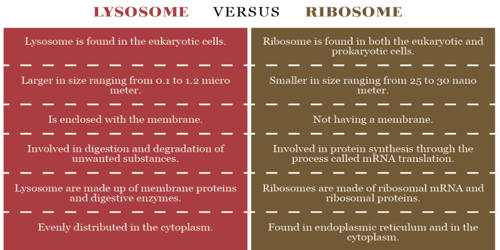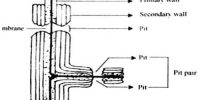A ribosome is a molecular machine found in both prokaryotic and eukaryotic cells. A lysosome is a membrane-bound organelle found in all animal cells. It is a spherical-shaped vesicle that contains hydrolytic enzymes.
Difference between Ribosome and Lysosome:
Covering: It is not covered with any coverings. It is not enclosed by a membrane.
Composition: It is made of DNA and Histone (Protein). It facilitates the linking of amino acid precursors in an order which is specified by the messenger RNA (mRNA).
Position: They either remain attached to different cell organelles or remain scattered in the cytoplasm. They can be found either bound to the endoplasmic reticulum or remained scattering in the cytoplasm.
Segmentation: It is divided into two uneven segments. It is composed of two unequal subunits called a small subunit and a large subunit.
Function: Protein synthesis takes place with the ribosome.
Size: It is comparatively small, 20-30 nm in size.
Type of Cell: It can be found in both prokaryotic and eukaryotic cells.

Covering: It is covered. It is enclosed by a membrane.
Composition: It contains many enzymes. They are composed of membrane proteins and lysosomal lumen enzymes. They are also composed of membrane proteins and digestive enzymes.
Position: Distributed equally throughout the cytoplasm. They are equally distributed in the cytoplasm.
Segmentation: It is not segmented. It is not a segmented organelle.
Function: It helps in intracellular digestion.
Size: They are comparatively large in size and vary from 0.1-1.2 µm.
Type of Cell: It can be found only in eukaryotic animal cells.

Main function –
Ribosome
- Ribosome has a pivotal role in protein synthesis and translation of mRNA.
- It accumulates amino acid which forms specific proteins. These proteins are very essential for cellular activities in the living cells.
- It helps to build tissues and repair damage of tissues;
- It produces enzymes which speed up the rate of chemical reactions;
Lysosome
- Lysosome has a significant role in digestion, they are considered as a waste disposal system for the cell.
- Hydrolase enzymes are present in the lysosome which capable of breaking down wastes and old cells.
- Lysosomes are membrane-bound organelles that enclose their enzymes, thus this protects the rest of the cell.
- Lysosomes contain different types of the enzyme such as include lipases, amylases, proteases, nucleases, etc which act on fats, carbohydrates, proteins, nucleic acids.













